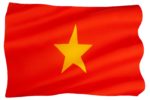Director Ensor says VOA to China will not go silent on October 1
This email just in less than 10 minutes ago, from David Ensor, Voice of America Director. Colleagues in the China Branch, I want to take this opportunity to share information with you about the FY 2012 budget and its possible impact on the Mandarin and Cantonese Services. I have been working closely with other senior agency managers on developments relating to VOA China programs and can confirm for you today that the proposed reductions to the VOA Mandarin and Cantonese Services will not take place on October 1.
Read more here:
Director Ensor says VOA to China will not go silent on October 1


